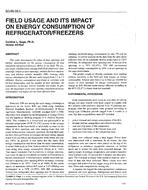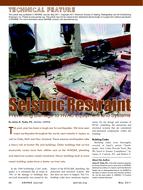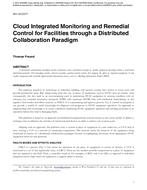Click here to purchase
An earlier study compared the thermal performance of combined dynamic shading systems to that of standard automated roller shades for perimeter spaces. It showed that with careful selection of fabric properties, for a small increase in heating energy, the combined system helped to reduce cooling loads while providing better viewing conditions. A key limitation of the analysis was that the effect of daylight-linked lighting controls was not included. This study presents a holistic energy assessment methodology that includes the interplay between natural lighting, electric lighting and restriction and/or admittance of solar heat gains into perimeter spaces, specifically for combined dynamic shading systems utilized in educational settings (classrooms). It includes movable roller shades, overhangs and light-shelves in synchronized operation to reduce the possibility of visual and thermal discomfort in the space through active control of shading components.
An advanced simulation engine that computes heating and cooling loads in the space by simultaneously calculating daylighting and thermal performance metrics was developed. The daylighting calculations are performed using a hybrid single bounce ray-tracing and radiosity model that determines horizontal illuminance on the students’ desk. The thermal analysis incorporates a thermal network model that is solved explicitly using the finite difference method. The simulation engine calculates heating and cooling loads at each time step to determine an Annual Load Based Energy Consumption (ALBEC) value. This helps in the selection of appropriate shading device characteristics to reduce building energy demand for different locations, orientations, window size and glazing properties.
Citation: ASHRAE Papers CD: 2014 ASHRAE Winter Conference, New York, NY
Product Details
- Published:
- 2014
- Number of Pages:
- 8
- File Size:
- 1 file , 1.6 MB
- Product Code(s):
- D-NY-14-C089


